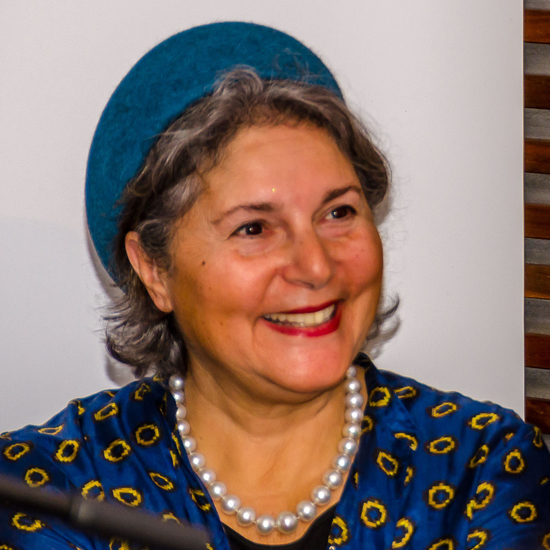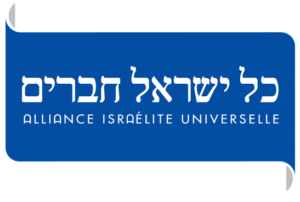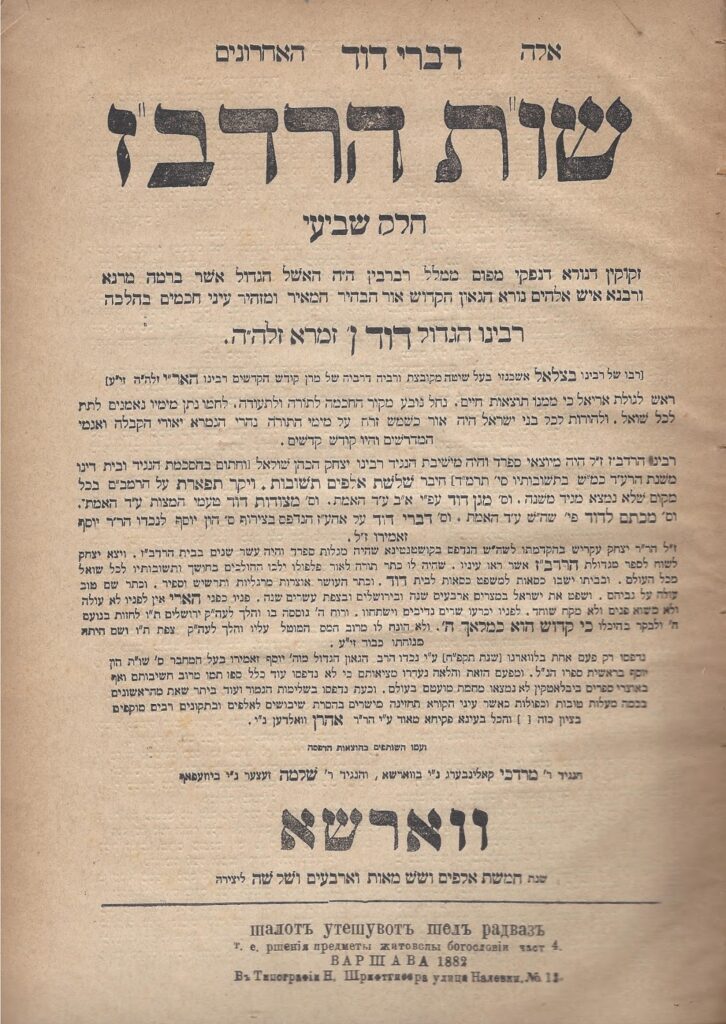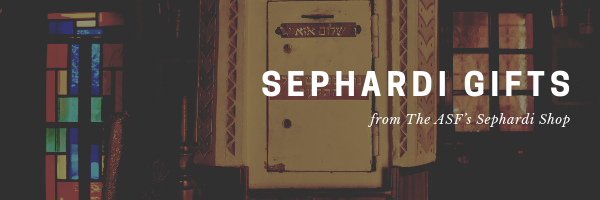[ad_1]
In Memory of the more than 1,000 victims (including 120 poisoned
patients, as revealed by ASF VP Carole Basri) of the Farhud, the two-day, Nazi-instigated attack on Babylonian Jewry that took place 82 years ago on 1-2 June 1941 at Baghdad, Iraq.
Click here to dedicate a future issue in honor or memory of a loved one

As the Holocaust’s impact on Sephardic North Africa and Middle Eastern Jewish communities remains a hidden history, the ASF works year-round with survivors and scholars to develop educational materials, exhibitions, and events to ensure Sepharadim are rightly recognized. The ASF has been especially successful in increasing awarness of the Farhud with major mainstream audiences, such as the readers of the San Diego Union Tribune, the students of the University of New Hampshire, and the listeners of The John Bachelor Show with Malcolm Hoenlein on CBS Radio. It is also worth noting that our Executive Director Jason Guberman’s Diarna Geo-Museum interview with Ruth (née Rejwan) Pearl, the first in which she shared details of surviving the Farhud, was cited in her Washington Post obituary. The ASF is particularly honored to help secure platforms for Farhud survivor Joseph Samuels, a nonagenarian who flew across the country to participate in a meeting of Holocaust survivors we organized for the Secretary General of the Muslim World League, Sheikh Dr. Mohammed Al-Issa, and who we recently recommended for an appearance on TVP World (Polish TV). Please contact us if you are interested in learning more and, hopefully, getting involved.
What follows is a re-issue of June 2021’s Sephardi Ideas Monthly: “The Farhud: A Passionate & Piercingly Sharp Poetic Tribute”
The American Sephardi Federation’s Sephardi Ideas Monthly is a continuing series of essays and interviews from the rich, multi-dimensional world of Sephardi thought and culture that is delivered to your inbox every month.
This issue features a searching, passionate, and piercingly sharp poem, “The Farhud,” written by Yvonne Green, a British-born poet, translator, and writer.
The Farhud: A Passionate & Piercingly Sharp Poem

Farhud is a Kurdish word for “violent dispossession,” and today it is used as the name for the orgy of death and destruction initiated by the Nazi-inspired, anti-Semitic forces of the Muslim Brotherhood that targeted Baghdad’s Jewish community on 1-2 June 1941, “on the Jewish Festival of Shabu’oth (Pentecost).” Green’s poem unflinchingly traces the history, horror, heroism, and psychological scars left by the traumatic event. She originally recited the poem, “on 2nd June 2017 at a service at London’s Lauderdale Road Synagogue, and at the Knesset (Parliament) in Jerusalem on 6th June 2017 to mark the Israeli Government’s announcement that they would compensate victims on the same scale as Holocaust survivors.”
The poem was commissioned by Harif for the commemoration of the 75th Anniversary of the Farhud.
Yvonne Green’s honors include being named the 2007 Poetry Business’ Book & Pamphlet Prizewinner for “Boukhara,” receiving the Winter 2011 Poetry Book Society Recommended Translation Award for “After Semyon Izrailevich Lipkin,” and the 2012 Buxton prize Commendation for “Welcome to Britain.” She splits her time today between Israel and England.
Sephardi Ideas Monthly wishes to honor the memory of those who suffered 80 years ago and to remember the rich and once-thriving Jewish world of Iraqi Jewry with Yvonne Green’s poem, “The Farhud.”
~~~~~~~
Special Feature: A Family’s Farhoud Remembrance
By David E.R. Dangoor

“This is as it was told to me by my father (Salim Eliahou Dangoor) and several members of his family.
Trouble was brewing. The third week of May my father’s Auntie’s (Naima Peress’) husband was asked to help to bring back Naim, my father’s brother, from the army. His camp had been bombarded by the British. He succeeded and Naim came home safely. Then in the morning of June 2nd, at the heat of Farhoud, my father’s Auntie and family heard a strong knock on our door. My father’s Grandfather Shaoul Khazma was staying in the house with the family. They were bracing themselves for the worst. Then a familiar voice said ‘Auntie open the door’. It was my father. He had put on his brother Naim’s uniform and riding trousers, and he was armed with a gun.
My father announced that he came to check on the family to make sure they were safe and alright. He then went to check on his father’s office and warehouse, which he discovered had been completely looted. He chased away intruders and later that evening returned home. My father loved his family and fear could not hold him back. He had to make sure they were alright and defend them if necessary.”
~~~~~~~

The Monthly Sage החכם החודשי

The sage for the month of June is Hakham David Ben Zimra (1479-1573), popularly known in traditional circles by his acronym, RaDBa”Z.
Born in Spain, David Ben Zimra was only thirteen when the Spanish-Christian monarchs authorized the expulsion of the Jews. David and his family first settled in Fes, Morocco, before moving to Safed in the Land of Israel. There, young David studied under rabbinic luminaries such as Hakham Yosef Saragosi, Hakham Levi Ben Habib, and Rabbi Yosef Taitachak.
Young David grew up to become a brilliant scholar, and Hakham David later moved to Egypt, where he was appointed head of the rabbinic court. Hakham David’s success as a merchant enabled him to support other Torah scholars and establish contacts with local government officials. When the Ottomans conquered Egypt in 1517, Hakham David was chosen to lead the Egyptian Jewish community, a position he held until, in 1553, he returned to the Land of Israel and settled in Safed.
Hakham David Ben Zimra was an original thinker, and a number of his judgments became foundational for subsequent rabbinic thinking. For instance, concerning the verse, “Miriam and Aaron spoke out against Moses because of the Cushite woman he had married, he married a Cushite woman” – RaDBa”Z clarified the Cushite woman was, “of the seed of Dan, who reside in the mountains of Cush.” “Cush” in Biblical Hebrew refers to Ethiopia, and RaDBa”Z, in short, was not only indicating that Jews reside in Ethiopia, but that they descend from the Biblical tribe of Dan. Four hundred years later, 20th century rabbinic authorities such as Hakham Ovadia Yosef based their rulings that Ethiopian Jews are, in fact, Jewish upon Hakham David’s earlier declaration.
Hakham David Ben Zimra passed away on 21 Heshvan, 5333 (1573), and he is buried in the ancient cemetery of Safed.
Hakham David composed a number of works that include halakhic responsa, commentaries on Maimonides and the Biblical Song of Songs, and a book of Kabbala that explains the letters of the Hebrew alphabet. His book, Metzudat David, explores the reasons for the commandments, and in the following passage treating the commandment to honor one’s mother and father, RaDBa”Z explains that there is no worse character attribute than being ungrateful to one’s parents:
The reason behind the commandment to honor parents is understandable at the intellectual level, since they bring us into the world and raise us, go hungry to feed us, go naked to clothe us and meet all our needs until we mature. It is therefore appropriate not to be ungrateful, there being no worse attribute. Our sages, of blessed memory, said that a person has three partners, and equated the honor and reverence due to them with those pertaining to the Holy one, blessed be He. The importance of this obligation is established in the Ten Commandments. It comes with a reward, since it says “so that you may fare well and have a long life”.
~~~~~~~

2008, Aluminum Cast
Sculpted by renowned Baghdad-born artist Oded Halahmy

My Life and Work: Chanukah Lamps
By Oded Halahmy
The Hebrew word Hanukkah means “dedication” and symbolizes freedom; Oded Halahmy has dedicated himself to honoring his Jewish roots and culture through artwork related especially to this holiday.
Oded once hosted a holiday party and invited many friends to light Hanukkah candles. Every year since, he has kept up the tradition of making a new Hanukkah lamp.
Over the years, other ancient Middle Eastern symbols from Oded’s Iraqi heritage began to appear in his lamps: the pomegranate, Hamsa (hand), lion, palm tree, palm frond, crown, and horseshoe.
~~~~~~~
Upcoming Events or Opportunities
The American Sephardi Community at the Celebrate Israel Parade!
Watch the Sephardic Jewish Brotherhood of America, Greek Jewish & Sephardic Young Professionals Network, Kehila Kedosha Janina, Congregation Magen David Manhattan, Congregation Etz Ahaim Sephardic, the American Sephardi Federation, and JIMENA as we proudly march at this year’s Celebrate Israel Parade in New York City on Sunday, June 4th!

~~~~~~~
ASF’s Institute of Jewish Experience presents:
Exclusive Authors Series with Anne Albert
Join us for another episode of Exclusive Authors Series where Anne Albert discusses her book “Jewish Politics in Spinoza’s Amsterdam.”
Thursday, 8 June at 12:00 PM EDT
(Complimentary RSVP)

About the book:
This book untangles a web of ideas about politics, religion, exile, and community that emerged at a key moment in Jewish history and left a lasting mark on Jewish ideas. In the shadow of their former member Baruch Spinoza’s notoriety, and amid the aftermath of the Sabbatian messianic movement, the Spanish and Portuguese Jews of seventeenth-century Amsterdam underwent a conceptual shift that led them to treat their self-governed diaspora community as a commonwealth. Preoccupied by the question of why and how Jews should rule themselves in the absence of a biblical or messianic sovereign state or king, they forged a creative synthesis of insights from early modern Christian politics and Jewish law and traditions to assess and argue over their formidable communal government. In so doing they shaped a proud new theopolitical self-understanding of their community as analogous to a Christian state.
About the author:
Anne Oravetz Albert is the Klatt Family Director for Public Programs at the Herbert D. Katz Center for Advanced Judaic Studies at the University of Pennsylvania.
Click here or more about the book.
Sponsorship opportunities available:
~~~~~~~
ASF’s Institute of Jewish Experience presents:
Living the Parsha with Mati Seri
Join us for a discussion of actor, singer, presenter and author Mati Seri’s new book “52 Weeks of Devotion” on the weekly Torah portion. The presentation will be accompanied by musical interludes by the singer.
Sunday, 11 June at 12:00 PM EDT
(Complimentary RSVP)

Sponsorship opportunities available:
~~~~~~~
ASF’s Institute of Jewish Experience presents:
Houses of Life:
Synagogues and Cemeteries in Italy
We invite you to a virtual tour of an exhibit currently on display at MEIS – the National Museum of Italian Judaism and the Shoah.
Curated by Andrea Morpurgo and Amedeo Spagnoletto, this exhibit offers an innovative in-depth approach focusing on the architecture, rituals, and the roles played by both synagogues and Jewish cemeteries in the Jewish community. Visitors will explore the specifically Italian nature of these two places, while understanding the over two thousand years of history of the country’s Jewish community.
The history of cities and of human beings intertwine in the exhibit, through their original architecture, artifacts that are passed down in and between families, and are on display. Among these are prestigious loans such as the Aron ha-Qodesh, the holy Ark, of the Vercelli Jewish Community and many precious documents from both State Archives and Italian Jewish Communities.
Monday, 26 June at 12:00 PM EDT
(Complimentary RSVP)

About the curators:
Andrea Morpurgo is an architect and architectural historian. He graduated from the Istituto Universitario di Architettura di Venezia, then moved to the Netherlands where he earned a Master of Excellence in Architecture at the Berlage Institute in Rotterdam and later a PhD in History of Architecture and Urban Planning at the Polytechnic of Turin. He is author of the book “The Jewish Cemetery in Italy: History and architecture of an identity space” (Quodlibet), professor of the “Synagogal Architecture” course of the three-year University Diploma in Jewish Studies promoted by the Union of Italian Jewish Communities, and member of the board of the “Foundation for Jewish Cultural Heritage in Italy”.
Amedeo Spagnoletto is the Director of the National Museum of Italian Judaism and the Shoah. He is also a sofer, a Jewish ritual scribe. From 2017 until 2019 he was Chief Rabbi of the Jewish Community of Florence. From 2011 until 2019 he was teacher of Jewish Law Principles, Exegesis and Bible, in the Jewish Studies Degree of the Union of Italian Jewish Communities.
Sponsorship opportunities available:
~~~~~~~
ASF Broome & Allen & ADL Collaborative for Change Fellow Isaac de Castro presents:
Entre Diasporas: Telling the Latin-American Jewish story. Contando la historia judía latinoamericana

Tell your story. Cuenta tu historia.
We’re looking for first-generation Latino Jews in the United States who immigrated because of political and social turmoil. Jews of Sephardic descent from Colombia, Cuba, and Venezuela that now reside in the Miami area will be given priority, but others are welcome to apply as well.
Fill out this form to be considered as an interviewee for this project. After you’ve submitted, we will be in touch promptly to set up a preliminary phone call.
Click here for more information.
[ad_2]
Source link


















